Brad Mielke If you could wake up tomorrow having gained any one quality or ability, what would it be?
Jolenta Greenberg Breathe underwater. Or like, speak fluent Spanish.
Brad Mielke I’d want to be able to hear animals’ thoughts.
Jolenta Greenberg Mm. Whoa, gonna go the whole Dr. Doolittle route, huh?
Brad Mielke Yeah yeah yeah yeah.
Jolenta Greenberg Wow. All right. I mean, we’ll see how that pans out, but okay.
When did you last sing to yourself?
Brad Mielke Maybe I haven’t yet today, but definitely yesterday.
Dacher Keltner There are 36 questions that have been shown over and over again in lab studies to help people fall in love or form fast connections.
Jolenta Greenberg If you knew that in one year you would die suddenly, would you change anything about the way you’re living now?
Brad Mielke Honestly, no.
Jolenta Greenberg We all want to fall in love. We all want like, that first, you know, Bumble date to be the one that sticks. And if there is an actual formula for this, we should be applying it.
Kristen Meinzer How much of it is malarkey and does it actually bring us closer to our partners? Does it do the opposite of that in some cases? There is so much advice being dispensed all the time. You know, it’s everywhere. It’s on TikTok, it’s on YouTube. Everything is being hacked. Everything has to be hacked, including our relationships. And so it’s everywhere.
Dacher Keltner Today, we’re exploring one of the more buzzed about relationship hacks, 36 questions that have been shown in lab studies to help spark romance and build friendships. I’m Dacher Keltner. Welcome to The Science of Happiness. Our guests today recruited their husbands to try them out.
Brad Mielke What do you value most in a friendship?
Jolenta Greenberg Acceptance.
Brad Mielke Openness.
Dacher Keltner We hear how that went. And then we hear from the married duo who came up with these questions, Arthur and Elaine Aron.
Arthur Aron The area of their brain that responds to the self becomes, when they think about the other person, activated. One of the things it means to be close to someone is that the other is part of who you are. The two of you become one in some sense.
Dacher Keltner The Arons explain the principles behind this practice, so you can use those tenets to come up with your own questions and foster closeness with anyone, family, friends, or even your sweetheart. More after this break.
Welcome back to The Science of Happiness. I’m Dacher Keltner. Today we’re diving into one of the most buzzed about happiness practices, 36 questions that can help increase closeness. And studies show that doing this 36 questions practice with another person can make you feel closer to someone you love. It can activate regions of the brain associated with positive emotion, and it can even increase comfort between people from different groups. We’re joined by Kristen Meinzer and Jolenta Greenberg of By the Book podcast. They took a stab at the practice with their husbands. Thank you both for joining us today.
Jolenta Greenberg Thank you for having us.
Dacher Keltner So you tried one of the kind of well-known relationship hacks, the 36 questions practice. There are these really interesting curated questions and you try them with your partner, takes about 45 minutes, you trade off. So you’re making sure that you’re kind of reciprocating and collaborating in the conversation. When you guys started this exercise with your husbands, what were your expectations?
Jolenta Greenberg I’d say for my partner, Brad, and I, we were like cautiously optimistic. So, like, either it’s going to make us fall more in love or like, what if it’s going to tell us a bunch of things we should have known from the beginning? And it’s like, ah, it’s too late, we’ve been married for years.
Dacher Keltner Kristen, how about you? How did you feel about going into these questions with your husband?
Kristen Meinzer Yeah, in full disclosure, my husband and I tried it out. At that point, he and I had been dating for less than six months. Our relationship was brand new at that point.
Dacher Keltner Really?
Kristen Meinzer Yes. And so this was not our first time doing it, but it was our first time doing it in seven years. So for us, it was a revisit.
Dacher Keltner Awesome.
Kristen Meinzer So I went in hoping that there would be some tenderness and nostalgia, remembering those early days together. And I was very disappointed to learn that Dean, my husband, he didn’t even remember doing it. And I’m like, What? You don’t remember us like, staring into each other’s eyes? You don’t remember us confessing all these things?
Dean McRobie Not really, no.
Kristen Meinzer You don’t remember this?
Dean McRobie Not particularly, no.
Kristen Meinzer Seriously, you don’t remember this?
I thought it was kind of meaningful when we did it. There were these 36 questions.
You don’t remember me crying? He’s like, No, I don’t remember any of this.
Dacher Keltner That’s not what was thought about in the design of the questions. So I want to ask you, Jolenta, when you headed into this, like, what was the context, you know, you’re busy, you’re doing your podcast and you’ve been married for a while and you take 45 minutes to do these questions. So what was it like?
Jolenta Greenberg I am sort of coming out of dealing with getting diagnosed with Lupus and being treated for that. And so during all of that, being on heavy medication and really needing to rely on him as like a caretaker, our relationship sort of shifted to like very much caretaker and patient. So we were sort of hoping it would help us like carve out some time to like sit together as people who, like, are equals. No one needs a helping hand at that moment and to just like get to know each other on sort of a dating, like flirty love level again.
Dacher Keltner You know, it’s such a, and I’m sorry about the Lupus.
Jolenta Greenberg Mm, thanks.
Dacher Keltner I’m curious, did this new sense of caregiving kind of weave its way into your questions with Brad and how it unfolded?
Jolenta Greenberg It sort of I feel like kind of wove its way out in a weird way. We went.
Dacher Keltner Wow. You returned to flirting.
Jolenta Greenberg Yeah, we sort of went to, like, talking about each other’s, like, body parts and stuff. Like, getting a little, like, naughty. And so it was sort of nice to be like, Oh, yeah, like, we used to be hot for each other.
Dacher Keltner How did you like the flow of the questions in the exercise from starting really simple, like Who would you like to have for dinner?, to harder stuff?
Kristen Meinzer Oh, I think it’s disarming. And I can see why this would work so well, especially with strangers, because you’re not diving in with the hard stuff. It’s almost sweet and funny and charming, the early questions. Like, When did you last sing to yourself? And, name three things that the two of you have in common. Those questions are just like, sweet. They’re complementary. They’re about like, Look at how similar we are. And I think it’s a really smart way to do things. You know, you don’t want to start off like asking all the bad cop questions. Start off with the good cop questions.
Dacher Keltner Yeah. And I like your word charming there. I mean, I agree there’s sort of this unfolding that happens.
Kristen Meinzer But then I was really surprised because, with one of the very first questions, you know, Who would you have as your guest for dinner if you could have anybody for dinner? Dean said, My Nana, because he knows how much I love my late grandmother. She’s not alive anymore.
Dean McRobie Okay. Given the choice of anyone in the world, who would you want as a dinner guest?
Kristen Meinzer I think the first time we did this I said my Nana.
Dean McRobie Yeah. That’s okay, because that’s my answer.
Kristen Meinzer You chose my Nana?
Dean McRobie Yeah. Well, you talk about her so much, and I would love to have met her. And so she would be an amazing dinner guest, I thought.
Kristen Meinzer We’re only on the first question and I’m already crying.
Dean McRobie Oh honey, you’re already falling in love again. I’m so glad.
Kristen Meinzer I love you, honey.
Dean McRobie I love you too.
Kristen Meinzer It worked, it worked.
And I just, I just broke down crying because I thought, Oh my gosh, this is so beautiful. He knows me so well. He knows this really important relationship that was a part of my life. He never got to meet my Nana when she was alive. But that alone, even if we just stopped the 36 questions right there, I would have thought, it’s all worth it, because this is somebody who knows my heart now, in a way he didn’t know it back then. And he would invite my Nana for dinner for my sake, not for his.
Jolenta Greenberg And sort of you’re just talking about yourself, but you’re slowly getting a little deeper, maybe talking about some anxieties or showing off like your social skills, either way. And then, you know, 10, 12 questions later, we’re getting into like, What’s your most terrible memory? And there’s like, that would be really difficult to start with if you’re one to like five dates in, or more. And so you need that sort of level of comfortability and trust about like this person is being accepting of my answers in order to feel open enough to talk about like what friendship means to you or, like, what role like love plays in your life or, like, your hardest memories.
Kristen Meinzer Yeah. And the questions, they unfold in a way where we have to be more vulnerable if we’re going to be honest as we keep answering the questions, because the questions, they can get harder, they can get more divisive, they get more at our insecurities, the bad things that have happened to us, the embarrassing things that have happened to us. As you roll along, it gets harder and harder.
Dacher Keltner On Romance Road Test, you’re taking stock of this new complicated space of relationship advice. And, you know, and this 36 questions is real. It’s part of our culture now. And it’s been done by millions. And I’m curious what your verdict is about the exercise.
Jolenta Greenberg I have to say my verdict was thumbs up, two thumbs up. I guess four if I count Brad’s. Like, we learned new things about each other. The fact that we find each other’s, like, bodies still bangin. And like, it’s just, it was a nice way, if you’re already coupled and possibly in a longer-term relationship, sort of remind yourselves, like where you agree, where you disagree, why you love the fact that you disagree. And overall, we really enjoyed it. Plus, it also reminded us how much we sing, which was an added bonus. We’re always singing to each other. And we never even thought about it until that question came up about like, When did you last sing to yourself or to someone else?
Kristen Meinzer Well, I’ll agree with Jolenta. It does get a little bit long in the end. For us, it didn’t take 45 minutes. It took way longer than 45 minutes to do all of this. It took a long time, but we feel like we got something out of it and we thought, what if we did this every seven years?
Dacher Keltner Wow.
Kristen Meinzer Like it might be fun just to revisit every seven years and see how our answers change, see how our answers are the same, see what we appreciate about each other, and maybe what we didn’t appreciate in the past. And that’s how we think we’re going to go forward with this in the future.
Dacher Keltner Well, we learn a lot from each other. And thank you so much, Jolenta and Kristen, for being on the show again. We really appreciate it. I hope we have you back and I hope people will learn a lot from your new podcast, Romance Road Test. So thanks for joining us.
Jolenta Greenberg Thank you so much for having us.
Kristen Meinzer Thank you so much.
Dacher Keltner The 36 questions practice can help anybody feel closer to each other.
Elaine Aron A conversation is like a tennis match, in which you say something, and then the other person says something and then you say something. So it’s back and forth, and those kind of conversations are really fun to be in.
Dacher Keltner More on how two psychologists came up with these powerful questions and how you can come up with your own, up next.
Welcome back to The Science of Happiness. I’m Dacher Keltner. We’ve been talking about the 36 questions that have been shown to spark romance in strangers and strengthen long-term relationships, like it did for Kristen and Jolenta. And studies also show that when complete strangers tried this practice, they reported feeling as close with one another as they do with their closest friends. It’s pretty incredible. And when people of different races did this practice together, they became more comfortable with one another, and were more likely afterwards to strike up conversations with people of another race.
Arthur Aron Studies have shown that the hormones change, that you’re more comfortable with the person afterwards, that the hormones that are associated with sort of connectedness become more active. And we see it in the brain scan or we see it in their behavior, all sorts of things.
Dacher Keltner Arthur Aron is a psychology professor at Stony Brook University, and he’s been on our show before to explain how asking these 36 questions affects our bodies and minds.
Arthur Aron The area of their brain that responds to the self becomes, when they think about the other person, activated. One of the things it means to be close to someone is that the other is part of who you are. The two of you become one in some sense.
Dacher Keltner Now we’re going to get into why they work and the principles you need to know about to craft your own questions to help you create more closeness with anyone in your life.
Elaine Aron We know a lot about what makes people get closer, and it’s about what they talk about.
Dacher Keltner That’s psychologist Elaine Aron, also Arthur’s wife. They created and studied the 36 questions practice together.
Elaine Aron They’re these steps of increasing intimacy. And we knew about this from research. So it was just a question of taking people through those steps, of easier questions to answer, then harder, and then ones that focused on the relationship itself.
Arthur Aron If you start out with something very deep, it’s hard for them to respond. It feels a little overwhelming.
Dacher Keltner But don’t ask questions that someone could easily answer on autopilot.
Elaine Aron What do you think about this weather we’ve been having? You know, that’s a pretty boring subject for most people.
Dacher Keltner Ease in with questions that require some thought, but where you don’t have to go too deep.
Arthur Aron If you could have anyone in history for dinner, who would you want to have dinner with? You know, you have to think about that a minute. You’re more engaged, when that happens.
Elaine Aron It allows for you to be more revealing, but it doesn’t require it.
Arthur Aron Yeah.
Elaine Aron Which is good.
Dacher Keltner Also make sure you’re listening intently and be responsive.
Arthur Aron And responsiveness means letting the person know you’ve heard them, you understand them, you validate them.
Dacher Keltner And all the while make sure you’re both asking and answering the questions, taking turns with each one.
Elaine Aron And the other thing that we know and it’s so important is that self-disclosure be equal. A conversation is like a tennis match, in which you say something, and then the other person says something, and then you say something. So it’s back and forth, and those kind of conversations are really fun to be in. There’s a trust that’s built that the other person isn’t going to dump on you, as Art says, overwhelm you, or suggest something kind of strange about their personality.
Dacher Keltner Once you start feeling more comfortable, that’s when you’re ready to move on to more personal and revealing questions. Questions about your hopes and your fears and your accomplishments.
Arthur Aron It makes you talk about something that’s really meaningful to you, and to consider it. And to share it.
Dacher Keltner And there are a few ways you can do that. One is to talk about the present moment.
Elaine Aron Like, you’re looking at me that way. What are you feeling? That kind of very intimate in the moment question.
Dacher Keltner Another is to ask more personal questions like, What’s your most embarrassing memory? Or, What’s something you wish you could share with another person?
Elaine Aron It requires you to do what you’re saying you wish you could do. This is the thing that I’ve not talked about with anybody, and now I’m doing it. That’s a big deal. I think people like to know that we’re interested in them in a deeper way. Very often people are just starving for your interest. There’s nothing better you can give to somebody, and I know this as a therapist, is simply to listen.
Dacher Keltner So to sum it all up, start slow. Don’t get too personal right away. Ask thought-provoking questions. Try to ask and answer questions between the two of you evenly so you both listen and you both are heard. And most importantly, make sure to be responsive by showing you’re listening, you understand, and you care.
Arthur Aron In fact, the main reason that 36 questions works as well as it does is because it provides the opportunity for people to hear each other. So you feel heard by the other person. That’s what makes you close.
Dacher Keltner On our next episode, we explore different ways to relate to our own anxieties.
[Speaker] Anxiety, because it has nothing to do with the present moment, it’s making us into mental time travelers, into the future. When you think about anxiety as this information that you really need to pay attention to, you also realize that it means that you’re still hopeful about that future.
Dacher Keltner I’m Dacher Keltner. Thank you for joining us on The Science of Happiness. You can find a list of these 36 questions and articles about the research behind it in our show notes. We also have a link to the episode of Kristen and Jolenta’s new Audible series, Romance Road Test, where they tried the practice. If you try out these 36 questions or create your own, we’d love to hear about it. Email us at happinesspod@berkeley.edu or use the hashtag #happinesspod. We love hearing what you think about these practices and how these stories might have impacted you. Our executive producer of audio is Shuka Kalantari. Our producer is Haley Gray. Sound designer is Jennie Cataldo of Accompany Studios. Our editor in chief is Jason Marsh, and our associate producer is Elena Neale-Sacks. The Science of Happiness is a co-production of UC Berkeley’s Greater Good Science Center and PRX.

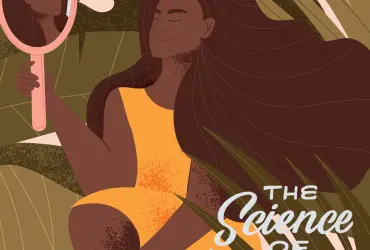
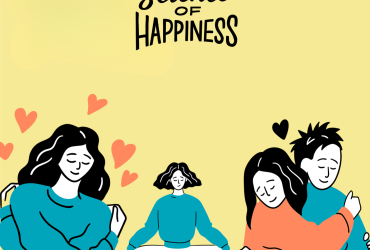
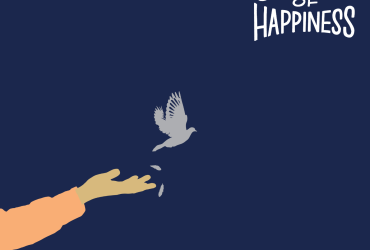

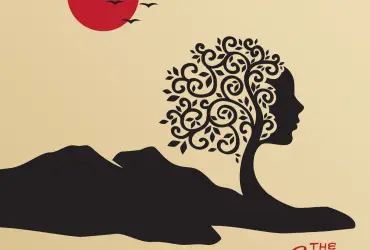
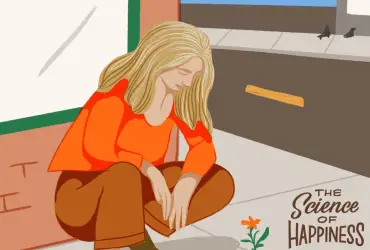
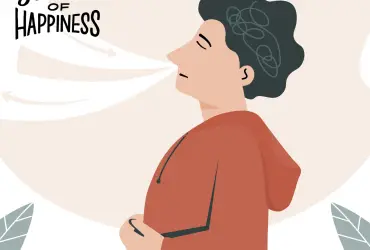
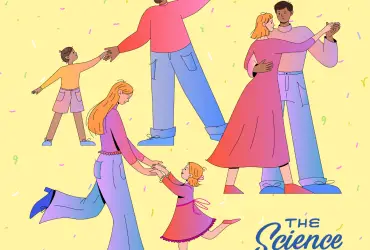
Comments